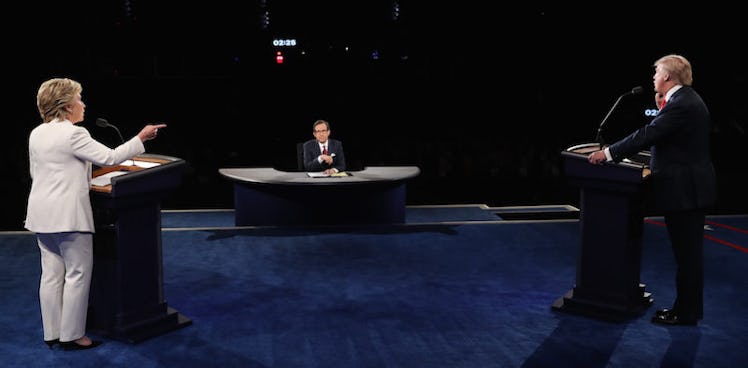
Books To Read If You Want To Win The Political Debate At Your Holiday Dinner
If your family is anything like mine, politics are probably going to come up at some point during the holiday season.
And if your family is anything like mine, you all share a Mediterranean stubbornness to be right.
If you want to actually be right (and not just stubborn in your belief that you are right), you can read some nonfiction.
Nonfiction tends to be seen as lame and boring, but as someone who majored in it, I can tell you it's really the best genre (suck it, poetry majors).
Nonfiction by definition tells you facts, but facts can be skewed and misrepresented, so you need to read a diverse pool of perspectives.
You can read up on all those articles you skipped this year, but reading through full books will help you gain insight on particular issues.
There's so much going on in American politics that this isn't a complete list by any means, but it's a good start.
If you'll be discussing presidential election voting demographics:
"Strangers in Their Own Land: Anger and Mourning on the American Right" by Arlie Russell Hochschild will help you understand the perspective of the white working class credited with Donald Trump's victory.
"Dark Money: The Hidden History of the Billionaires Behind the Rise of the Radical Right" by Jane Mayer will give you another side to that story.
You can also check out "The Fight to Vote" by Michael Waldman, which gets into the failure of voting rights.
If you'll be discussing Hillary Clinton's campaign faults:
Rebecca Traister's "Big Girls Don't Cry," which is actually about the 2008 election, was immensely helpful for me this year to understand what was going on with the Clinton campaign.
Obviously it doesn't get into the specifics of the 2016 election, but it gives a really good look into Clinton's campaigning.
If you'll be discussing Trump:
Try "The Making of Donald Trump" by David Cay Johnston.
If you'll be discussing fake news:
Check out "Conspiracy Theories: Secrecy and Power in American Culture" by Mark Fenster for a look into what drives people to believe conspiracies.
You can also check out "The Paranoid Style in American Politics" by Richard J. Hofstadter, which was published 50 years ago but is still super relevant.
If you'll be discussing Russia shadiness:
Try out "The Man Without A Face: The Unlikely Rise of Vladimir Putin" by Masha Gessen. This book gets into the rise of Putin and how he ended up in power.
If you'll be discussing Black Lives Matter:
Pick up "They Can't Kill Us All: Ferguson, Baltimore, and a New Era in America's Racial Justice Movement" by Wesley Lowery.
As a reporter, Lowery was on the scene in the aftermath of many police shootings — and was arrested in Ferguson. His accounts will help you better understand the movement.
If you'll be discussing how Scalia's place on the Supreme Court will be filled:
Check out "My Own Words" by Ruth Bader Ginsburg, which is literally a collection of the justice's writings from her lifetime. It's a really awesome way to learn about her.
Then you can pick up "Reading Law: The Interpretation of Legal Texts" by Antonin Scalia and Bryan A. Garner to get the other side of the story.
If you'll be discussing Islamophobia:
Peter Bergen is a fascinating writer, and "United States of Jihad: Investigating America's Homegrown Terrorists" will put fear of "Islamic radicalism" in America in a bit more context.
"Muslims and the Making of America" by Amir Hussain will give you historical context.
If you'll be discussing DC's internal politics and corruption:
Read "This Town" by Mark Leibovich for some hysterical (in both the funny and maddening sense) insight.
Feel free to leave your own book suggestions in the comments!